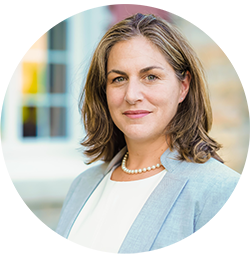NB Pilot Communities, News Release
New Brunswick’s Smart Energy Community Accelerator Communities Enter a New Phase
Helping Canadian Communities Shape Their Smart Energy Futures
SECA program aids New Brunswick communities in discussing and actioning community energy plans and has the potential to spread across the country
FOR IMMEDIATE RELEASE
Nov. 15, 2021 — Community action is essential to ensure that Canada meets its climate goals. That’s why QUEST is proud to announce a new milestone, as participating communities enter a new phase of the New Brunswick Smart Energy Community Accelerator Program (SECA).
Though this effort is currently in New Brunswick, there is great potential for it to expand across Canada, and help communities develop climate solutions through inventive, locally relevant and economically stimulating solutions.
SECA is designed to foster economic development and greenhouse gas emission reduction efforts. In New Brunswick, this program includes 10 communities, including one First Nation. They are:
- Town of Quispamsis
- Town of Woodstock
- Village of Perth-Andover
- Town of Florenceville-Bristol
- Village of Petitcodiac
- Town of Saint Andrews
- Town of St. Stephen
- Town of Oromocto
- St. Mary’s First Nation
- Town of Sussex
Communities like these — and others around Canada — play an outsized role in combating climate change. According to the Federation of Canadian Municipalities, around 60 percent of public infrastructure in Canada is owned by local governments. We also know that communities are responsible for over half of Canada’s energy use and GHG emissions.
“So much attention is given to how the federal and provincial governments plan to tackle climate change, while also fostering resilience and economic growth. But the implementation of climate action, building resilience and driving economic growth happens in our communities — where we live, where we work, where we raise our families,” says Tonja Leach, Executive Director, QUEST.
“When we take a place-based, systems and collaborative approach to energy use in our communities, we build buy-in and support for local, provincial and federal climate action, we elevate local climate ambition, we help to mitigate the impact of climate action on marginalized groups and hard to abate sectors, and the impact is much greater than emissions reductions alone,” says Tonja.
In this New Brunswick program, SECA has engaged around 100 community staff, partners and local stakeholders across the participating communities. Through a series of led exercises, participants identified the areas for improvement, opportunities, and sites of future developments in their cities.
The 10 communities recently finished Stage 2 of the process, which includes the Smart Energy Communities Benchmark, a tool that measures where the communities stand relative to best practices in Canada. It also allows them to track their progress over time.
Now, the communities and their local stakeholders have moved into Stage 3 of the project, which involves community energy plan mapping and development with a focus on local engagement and the iterative co-design of local energy action plans.
“We know that communities can help develop positive transition narratives locally, which can drive behavioural changes to reduce energy and GHG emissions as well as foster sustainable local economies,” says Eddie Oldfield, Senior Lead, Projects and Advisory Services at QUEST. “While we’re running this program in New Brunswick, SECA can be deployed in any community — there’s always room for more innovation when it comes to powering Canada.”
Today, QUEST also updated the program’s website. There, you can find additional information about the SECA reports’ findings for the communities, and what the process and reports can offer other communities.
QUEST also has experts ready to speak about this program and its findings so far, both in specific communities and in a broader context. Experts can also speak about the ideal outcomes from the project and the benefits of the approach on a broader scale within jurisdictions across Canada.
MEDIA CONTACT
To set up an interview, please contact:
Cheryl Ratchford
Director, Communications & Marketing
Toll Free: 866-494-2770 e.703
[email protected]
To stay up to date on the NB SECA Program, and for more information, visit QUEST’s website.
This project was supported by the Atlantic Canada Opportunities Agency (ACOA), the Government of New Brunswick Environmental Trust Fund, Énergie NB Power, the Suncor Energy Foundation, and Stantec.
ABOUT QUEST
QUEST is a national non-government organization that works to accelerate the adoption of efficient and integrated community-scale energy systems in Canada by informing, inspiring, and connecting decision-makers. The organization commissions research, communicates best practices, convenes government, utility, and private-sector leaders, and works directly with local authorities to implement on-the-ground solutions.
QUOTES AND IMAGES

Tonja Leach, Executive Director, QUEST
Read the quote
“So much attention is given to how the federal and provincial governments plan to tackle climate change, while also fostering resilience and economic growth. But the implementation of climate action, building resilience and driving economic growth happens in our communities — where we live, where we work, where we raise our families,” says Tonja Leach, Executive Director, QUEST.
“When we take a place-based, systems and collaborative approach to energy use in our communities, we build buy-in and support for local, provincial and federal climate action, we elevate local climate ambition, we help to mitigate the impact of climate action on marginalized groups and hard to abate sectors, and the impact is much greater than emissions reductions alone,” says Tonja.

Eddie Oldfield, Senior Lead, Projects & Advisory Services, QUEST
Read the quote
“We know that local governments can help develop positive transition narratives in their communities and that these can drive behavioural changes to reduce energy and GHG emissions as well as foster sustainable local economies,” says Eddie Oldfield, Senior Lead, Projects and Advisory Services at QUEST.
Sign Up
Join the Conversation!
Sign up to get the latest news and updates about QUEST Canada events and receive QUEST Canada's monthly newsletter.

